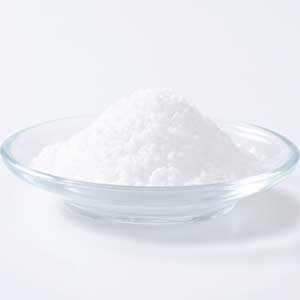
News
ліп . 20, 2024 11:41 Back to list
Designing Innovative Chelating Agents Using Citric Acid for Environmental Applications and Metal Removal
Exploring Custom Chelating Agents The Case of Citric Acid
Chelating agents play a pivotal role in various industrial and research applications due to their ability to form complex structures with metal ions. One of the most versatile chelating agents is citric acid, a naturally occurring organic acid found in citrus fruits. Its unique structure and properties make it an excellent candidate for custom chelation processes across diverse fields, including agriculture, pharmaceuticals, and environmental science.
The Structure of Citric Acid
Citric acid, chemically known as 2-hydroxypropane-1,2,3-tricarboxylic acid, possesses three carboxylic acid groups and one hydroxyl group. This arrangement allows citric acid to chelate metal ions effectively. The multiple sites available for bonding enable citric acid to form stable complexes with a variety of metals, including calcium, magnesium, iron, and lead. Consequently, its chelating properties can be tailored to meet specific needs in different applications.
Applications in Agriculture
In agriculture, chelating agents like citric acid are essential for improving nutrient availability to plants. Many essential micronutrients, such as iron and zinc, are only soluble in certain conditions. By chelating these nutrients, citric acid enhances their solubility and uptake by plant roots, thereby promoting healthier growth and higher yields. Custom formulations of citric acid can be developed to target specific crops or soil conditions, optimizing the nutrient delivery system in various agricultural settings.
Furthermore, citric acid’s biodegradable nature makes it an environmentally friendly alternative to synthetic chelators, which can be harmful to ecosystems. Farmers and agricultural scientists increasingly recognize the importance of sustainable practices, and citric acid’s natural origin aligns with this trend.
Role in Pharmaceuticals
custom chelating agent citric acid

The pharmaceutical industry also exploits the chelating properties of citric acid. In drug formulation, citric acid is often used to stabilize metal-containing compounds and enhance drug solubility. For instance, certain chemotherapy drugs require chelating agents to improve their efficacy and reduce toxicity. Custom formulations utilizing citric acid can be designed to create stable complexes that improve the therapeutic profile of medications, ultimately benefiting patient outcomes.
Additionally, citric acid can act as a preservative in pharmaceutical formulations. Its acidity can inhibit microbial growth, thereby extending the shelf life of products. By customizing the concentration and formulation of citric acid, pharmaceutical companies can create safer and more effective medications.
Environmental Applications
Citric acid's ability to bind heavy metals also makes it a valuable tool in environmental remediation. Contaminated soils and water bodies often contain toxic metals like lead and cadmium, which pose significant health risks. Citric acid can chelate these metals, facilitating their extraction from the environment. Researchers are exploring custom citric acid formulations to enhance the efficiency of remediation efforts, aiming to develop methods that are both effective and sustainable.
Moreover, citric acid plays a role in bioremediation, where microorganisms break down pollutants. By creating an optimal environment with citric acid as a chelator, scientists can enhance the bioavailability of heavy metals to microbes, promoting their natural degradation processes.
Conclusion
Citric acid, as a custom chelating agent, stands out due to its versatility, effectiveness, and environmental compatibility. Its applications in agriculture, pharmaceuticals, and environmental science demonstrate its importance across multiple sectors. As research progresses, the development of tailored citric acid formulations will likely unlock new potentials, making it an invaluable asset in addressing contemporary challenges in nutrition, health, and environmental sustainability. With its natural origin and multifunctional capabilities, citric acid is truly a remarkable compound deserving further exploration and innovation.
-
Polyaspartic Acid Salts in Agricultural Fertilizers: A Sustainable Solution
NewsJul.21,2025
-
OEM Chelating Agent Preservative Supplier & Manufacturer High-Quality Customized Solutions
NewsJul.08,2025
-
OEM Potassium Chelating Agent Manufacturer - Custom Potassium Oxalate & Citrate Solutions
NewsJul.08,2025
-
OEM Pentasodium DTPA Chelating Agent Supplier & Manufacturer High Purity & Cost-Effective Solutions
NewsJul.08,2025
-
High-Efficiency Chelated Trace Elements Fertilizer Bulk Supplier & Manufacturer Quotes
NewsJul.07,2025
-
High Quality K Formation for a Chelating Agent – Reliable Manufacturer & Supplier
NewsJul.07,2025
